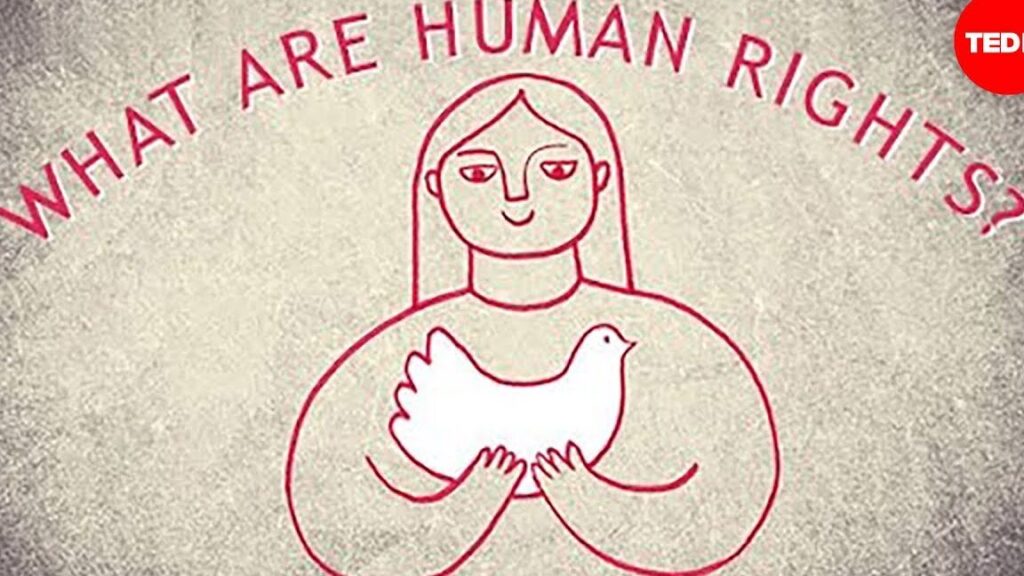
The Pros and Cons of Human Rights: Debating the Balance of Justice

Human rights are a fundamental aspect of modern society, ensuring that every individual is entitled to certain basic protections and freedoms. However, the concept of human rights is not without its complexities and controversies. While many argue that human rights are essential for creating a just and equitable society, others question the practicality and effectiveness of such rights. This article will explore the pros and cons of human rights, delving into the various arguments for and against their implementation.
In this article, we will examine the positive aspects of human rights, such as their role in promoting equality, justice, and dignity for all individuals. We will also discuss the potential downsides and challenges associated with human rights, including concerns about cultural relativism and the limitations of international enforcement. By presenting a balanced perspective, this article aims to foster a deeper understanding of the complexities surrounding human rights and encourage thoughtful dialogue on this important topic.
Index
Advantages of human rights: Promoting equality and justice
Human rights are essential for promoting equality and justice in society. They provide a framework that protects individuals from discrimination, violence, and oppression, ensuring that every person is treated with dignity and respect. By upholding human rights, societies can create a more inclusive and fair environment for all.
One of the main advantages of human rights is the promotion of equality. Human rights laws prohibit discrimination based on factors such as race, gender, religion, sexual orientation, and disability. This means that everyone has the right to be treated equally, regardless of their background or personal characteristics. By promoting equality, human rights help to break down barriers and create a more inclusive society where everyone has equal opportunities to thrive.
Furthermore, human rights play a crucial role in promoting justice. They ensure that individuals have access to a fair legal system and are protected from arbitrary arrest, torture, and other forms of cruel and inhumane treatment. Human rights also guarantee the right to a fair trial and the presumption of innocence until proven guilty. By upholding these principles, human rights help to maintain the rule of law and ensure that justice is served.
In addition to promoting equality and justice, human rights also protect individuals' freedom of expression, association, and religion. These rights allow people to voice their opinions, participate in political and social activities, and practice their religion freely. By protecting these fundamental freedoms, human rights contribute to the development of democratic societies where individuals can actively engage in public discourse and hold their governments accountable.
Moreover, human rights serve as a powerful tool for social change. They empower individuals and communities to advocate for their rights and challenge oppressive systems and practices. Human rights activists and organizations play a crucial role in raising awareness about human rights violations and working towards their eradication. Through their efforts, they contribute to creating a more just and equitable world for future generations.
Conclusion
The advantages of human rights are undeniable. They promote equality, justice, and freedom, empowering individuals to live with dignity and respect. By upholding human rights, societies can create a more inclusive and fair environment for all. However, it is important to recognize that the implementation of human rights can be complex and face challenges. It requires ongoing efforts from governments, civil society, and individuals to ensure that human rights are protected and respected in practice.
It is crucial for individuals to be aware of their rights and stand up against any violations they may face. By educating themselves about human rights and actively participating in the promotion and protection of these rights, individuals can contribute to a more just and equitable society.
Disadvantages of human rights: Potential conflicts and limitations

While human rights are undeniably important and necessary for ensuring justice and equality, they are not without their disadvantages and limitations. One of the main challenges is the potential for conflicts between different human rights. For example, the right to freedom of speech may clash with the right to privacy, as in cases where hate speech violates the rights of individuals or groups.
Another disadvantage is the cultural relativism argument, which suggests that human rights are not universally applicable and should be interpreted in the context of specific cultures and societies. Critics argue that imposing Western values and norms through human rights can undermine cultural diversity and autonomy.
Furthermore, there is the issue of limited resources and competing priorities. Governments and organizations face the challenge of allocating resources to protect and promote human rights while also addressing pressing issues such as poverty, healthcare, and education. This can result in a trade-off between different rights and needs.
Additionally, some argue that human rights can be used as a tool for political manipulation. Governments may selectively enforce or disregard certain rights to serve their own interests or suppress dissent. This highlights the need for accountability and transparency in the implementation and protection of human rights.
Lastly, there is the ongoing debate about the balance between individual rights and collective interests. Some argue that an excessive focus on individual rights can undermine social cohesion and the common good, while others emphasize the importance of protecting individual freedoms and autonomy.
It is important to acknowledge these disadvantages and limitations in order to have a more nuanced and balanced understanding of human rights. By addressing these challenges, we can work towards creating a more inclusive and just society for all.
Balancing human rights with national security: Finding a middle ground
When it comes to human rights, there is often a delicate balance that needs to be struck between protecting individual liberties and ensuring national security. This is a topic that sparks intense debate and raises important questions about the limits of personal freedoms in the face of potential threats.
On one hand, proponents of human rights argue that every individual is entitled to certain fundamental rights and freedoms, such as the right to life, liberty, and security of person. They believe that these rights should be protected at all costs, without exception, as they form the cornerstone of a just and fair society.
However, others argue that in certain circumstances, the protection of national security may require some limitations on individual rights. They believe that in order to maintain order and protect the greater good, certain measures, such as increased surveillance or limitations on freedom of speech, may be necessary.
This debate becomes particularly relevant in the context of counterterrorism efforts. Governments often face the challenge of balancing the need to prevent terrorist attacks with the need to respect individual rights. The question arises: to what extent can personal freedoms be restricted in the name of national security?
Those in favor of prioritizing national security argue that the potential harm caused by terrorism outweighs the importance of protecting individual rights. They believe that in order to prevent potential threats, it may be necessary to employ surveillance tactics, detain individuals without trial, or limit freedom of movement.
On the other hand, critics argue that such measures can lead to the erosion of civil liberties and the abuse of power by governments. They believe that sacrificing individual rights in the name of security sets a dangerous precedent and can ultimately undermine the very values that define a democratic society.
It is important to note that finding a middle ground between human rights and national security is a complex task. It requires careful consideration of the potential consequences of both protecting and limiting individual freedoms. Striking the right balance is crucial to ensure that human rights are respected while also maintaining the safety and well-being of society as a whole.
Ultimately, the debate surrounding human rights and national security is a deeply philosophical and ethical one. It forces us to confront difficult questions about the trade-offs between personal freedoms and collective security. As we continue to navigate these complex issues, it is essential that we engage in thoughtful and informed discussions to ensure a just and equitable society for all.
Debating the effectiveness of international human rights organizations
One of the main debates surrounding human rights is the effectiveness of international organizations in upholding and protecting these rights. On one hand, supporters argue that these organizations play a crucial role in promoting and enforcing human rights standards globally. They believe that through their monitoring, reporting, and advocacy efforts, these organizations can help hold governments accountable for human rights violations and create pressure for change.
However, critics argue that international human rights organizations often face limitations and challenges that hinder their effectiveness. They point out that these organizations rely heavily on the cooperation of member states, which can undermine their ability to take strong action against violators. Additionally, they argue that the political nature of these organizations can sometimes lead to biased or selective reporting, undermining their credibility.
Despite these criticisms, international human rights organizations continue to play a crucial role in bringing attention to human rights violations and advocating for change. Their efforts have led to significant advancements in human rights, such as the abolition of slavery, the recognition of women's rights, and the establishment of international legal frameworks to protect individuals from torture and discrimination.
However, it is important to acknowledge that the work of these organizations is not without challenges. They often face resistance from governments, lack of resources, and limited enforcement mechanisms. Nonetheless, their existence and advocacy efforts are essential in creating awareness, promoting dialogue, and pushing for positive change in the field of human rights.
It is crucial for individuals, governments, and civil society to continue engaging in debates and discussions about the effectiveness of international human rights organizations. By critically examining their role and impact, we can work towards strengthening their effectiveness and ensuring that human rights are protected and respected for all.
Ultimately, the debate on the effectiveness of international human rights organizations is complex and multifaceted. It requires a nuanced understanding of the challenges they face and the impact they can have. It is important to continue exploring ways to improve their effectiveness, address their limitations, and ultimately strive for a world where human rights are universally respected and protected.
Frequently Asked Questions
What are human rights?
Human rights are basic rights and freedoms that every individual is entitled to, regardless of their nationality, race, gender, or any other characteristic.
Why are human rights important?
Human rights are important because they ensure that all individuals are treated with dignity, equality, and fairness, promoting a just and inclusive society.
What are some examples of human rights?
Examples of human rights include the right to life, liberty, and security of person, freedom of speech, freedom of religion, and the right to a fair trial.
Are there any limitations to human rights?
Yes, human rights can be limited in certain circumstances, such as to protect public safety, national security, or the rights of others.
Si leer artículos parecidos a The Pros and Cons of Human Rights: Debating the Balance of Justice puedes ver la categoría In favor or oppossing.






Leave a Reply